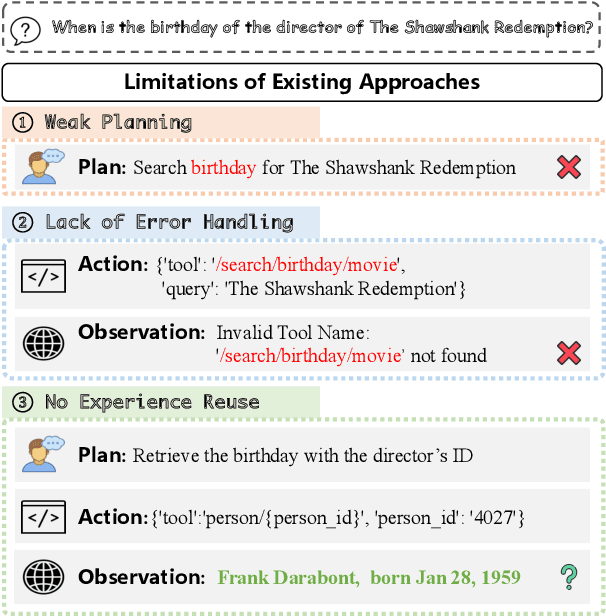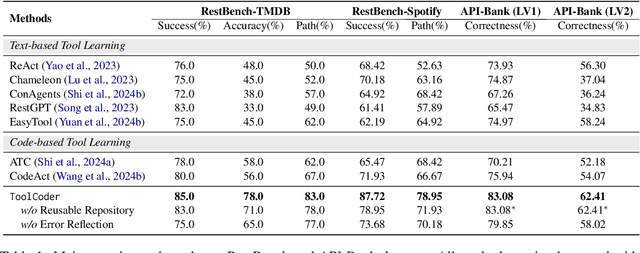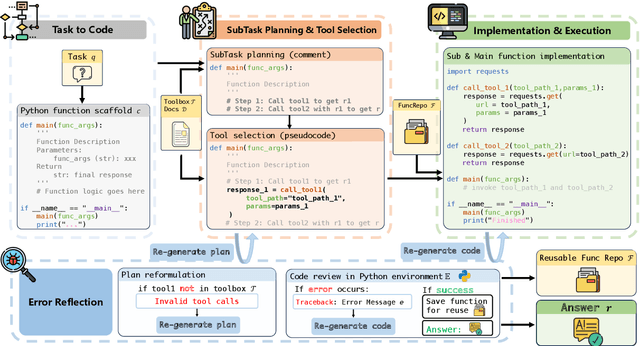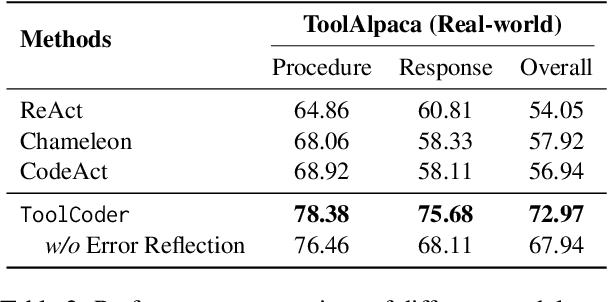ToolCoder: A Systematic Code-Empowered Tool Learning Framework for Large Language Models
Paper and Code
Feb 17, 2025



Tool learning has emerged as a crucial capability for large language models (LLMs) to solve complex real-world tasks through interaction with external tools. Existing approaches face significant challenges, including reliance on hand-crafted prompts, difficulty in multi-step planning, and lack of precise error diagnosis and reflection mechanisms. We propose ToolCoder, a novel framework that reformulates tool learning as a code generation task. Inspired by software engineering principles, ToolCoder transforms natural language queries into structured Python function scaffold and systematically breaks down tasks with descriptive comments, enabling LLMs to leverage coding paradigms for complex reasoning and planning. It then generates and executes function implementations to obtain final responses. Additionally, ToolCoder stores successfully executed functions in a repository to promote code reuse, while leveraging error traceback mechanisms for systematic debugging, optimizing both execution efficiency and robustness. Experiments demonstrate that ToolCoder achieves superior performance in task completion accuracy and execution reliability compared to existing approaches, establishing the effectiveness of code-centric approaches in tool learning.
 Add to Chrome
Add to Chrome Add to Firefox
Add to Firefox Add to Edge
Add to Edge